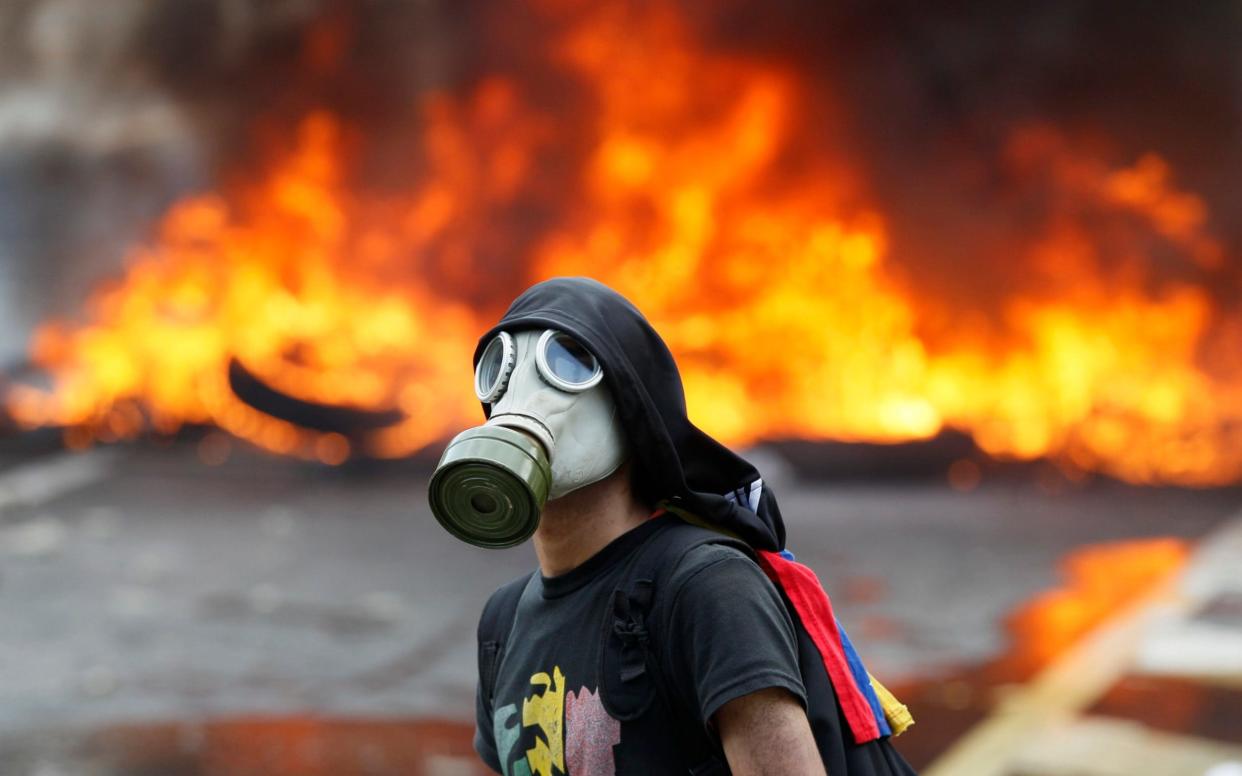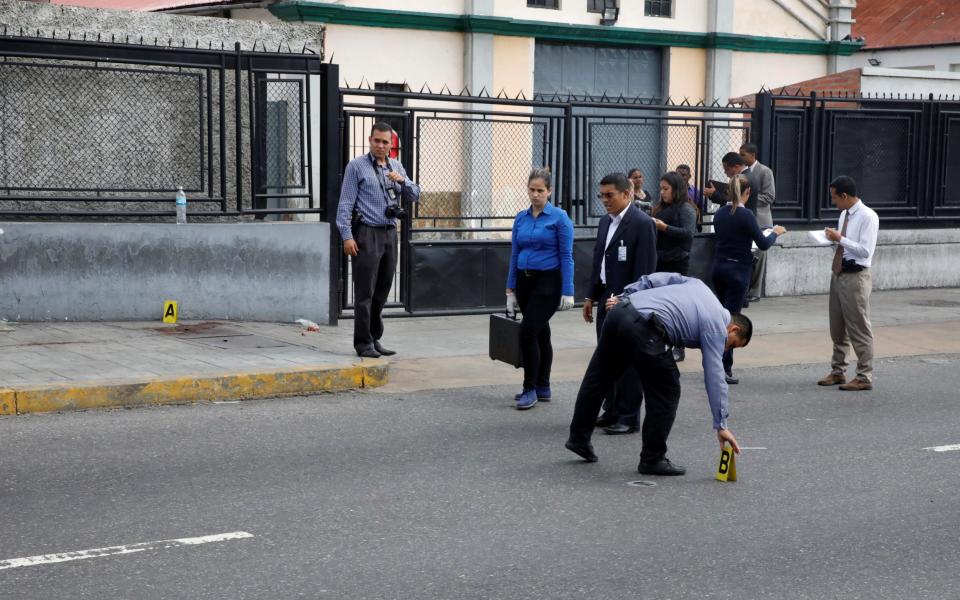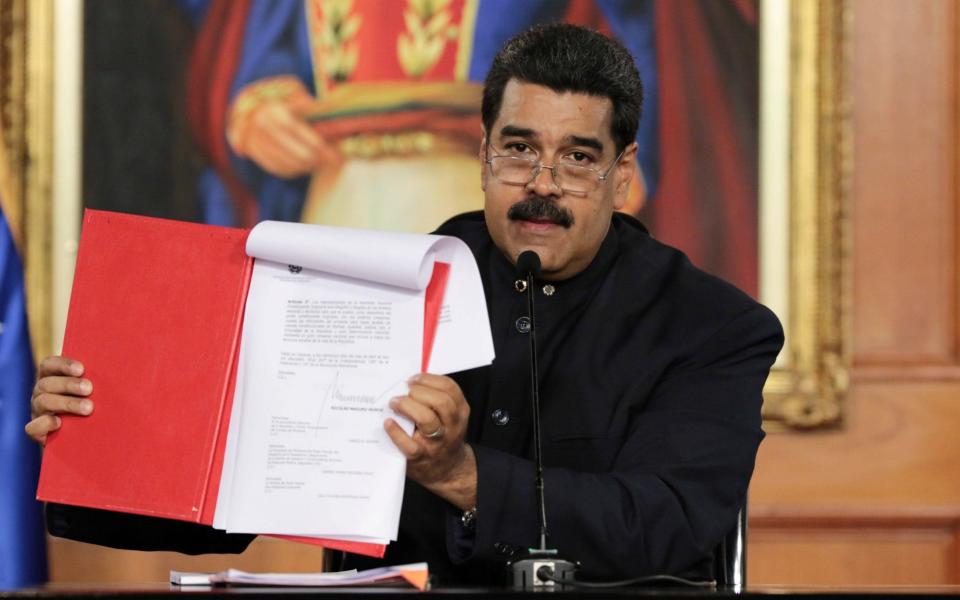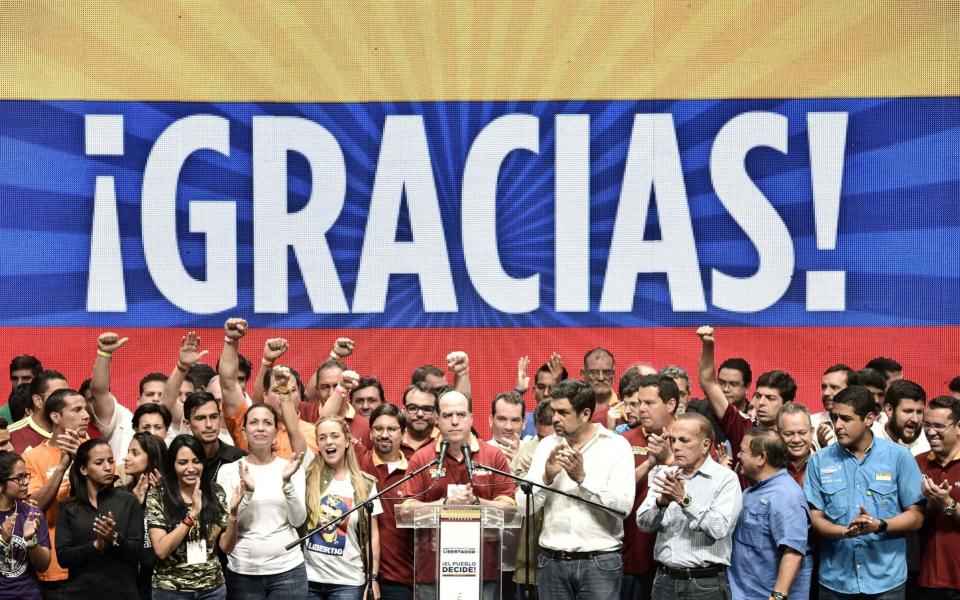Woman shot dead in Venezuela voting queue, as opposition hails 'plebiscite' as blow against Maduro

A 61-year-old nurse was shot dead in an attack on a Caracas polling station on Sunday, as voters queued for an unofficial referendum hailed by Venezuela’s opposition as a major strike against embattled president Nicolas Maduro.
The woman, Xiomara Escot, was killed when a pro-government armed group opened fire at the El Carmen Church polling station in Catia, an impoverished neighbourhood of the capital that was once a stronghold of the Chavista government.
There, as across Venezuela, voters overwhelmingly backed proposals to halt Mr Maduro’s formation of a people’s assembly, to hold fresh elections and demand the armed forces uphold the decisions of the opposition-controlled parliament.
Ninety-eight percent voted in favour across all three questions, with more than seven million people casting ballots inside Venezuela and abroad. However the vote, dismissed by Mr Maduro as illegal, was largely boycotted by government supporters.
Julio Borges, president of the National Assembly, nevertheless hailed it as a mandate for change.
“The people came out on a massive scale to give us a mandate that we are going to fulfill and ensure is fulfilled. It is up to us to make the government understand the message of today,” he said.

Mr Borges condemned the attack in Catia, demanding an end to the violence which has claimed more than 90 lives since anti-government protests began in April.
Images posted on social media, purportedly from the scene, showed armed men in black descending on motorcycles and raising handguns; three people were also injured.
Maria Corina Machado, an opposition leader, laid blame for the attack directly on Mr Maduro, who has been widely criticised by human rights groups over violence by government-linked militia groups known as collectives. “The dead and the injured are the responsibility of Miraflores (presidential palace),” she told a press conference.
Mr Maduro remained tight-lipped over the vote on Sunday, focusing instead on his own July 30 vote to form a people's assembly that will rewrite the country's constitution.
It is this drive - which would allow Mr Maduro to bypass the opposition-led National Assembly - that triggered Sunday’s plebiscite.

The vote was backed by the country's rebel attorney general, Luisa Ortega Diaz, the formerly loyal Chavista who has turned on Mr Maduro over human rights abuses by government forces and the legislative manoeuvering that she says amounts to a coup d’etat. Ms Ortega Diaz said she had opened an investigation into the Catia shooting.
Mr Maduro has tried to ward off growing discontent with a combination of threats and gestures, last weekend allowing the transfer of Leopoldo Lopez, a key opposition leader, to house arrest after three years in a military prison.
On Friday, he announced an 80 per cent pay rise for the Bolivarian National Guard, amid increasing signs of discontent in the lower ranks. Earlier this month, the Associated Press reported that 102 soldiers have been arrested for crimes such as rebellion and desertion since protests began in April.

Lower level officers and their families are also suffering from the hyperinflation and devastating shortages of food and medicine that have left many Venezuelans struggling to survive and forced an exodus into neighbouring countries.
In the most dramatic sign of dissent, a rogue police officer last month attacked the country's Supreme Court with a police helicopter before going on the run and posting videos declaring himself part of a faction that was fighting to bring down Maduro's regime.

